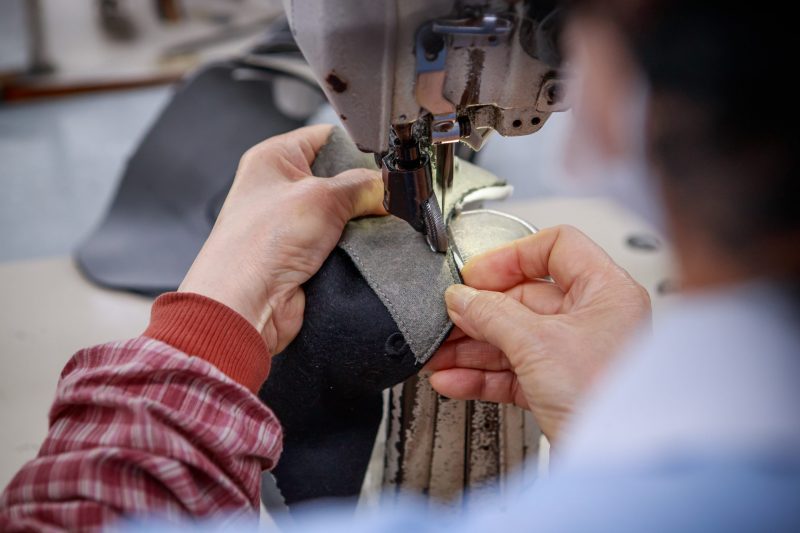Sustainable ways of working = business innovation
-thinkstep – nz
In a tough year for many manufacturers, it’s heartening to see innovation continuing to show up through more sustainable ways of working.
In this article, we bring you three local people and businesses who’ve used Life Cycle Assessment (LCA) and responsible procurement to build ‘new’ into their packaging, their manufacturing processes, and their products.
The business benefits? Opportunities to gain market share, build reputation, strengthen relationships with suppliers, manage supply chain risk, and reduce the costs of materials and disposing of waste.
Lorde: making a zero-carbon album
Quote
Early in making this album, I wanted to look closely at the environmental impact of its manufacture and distribution. Working to achieve zero-carbon status for Solar Power was an eye-opening experience. Lorde
Grammy Award-winner Lorde is determined to reduce her carbon footprint. That’s why one of the formats of her long-awaited third album, Solar Power, released in August, is zero-carbon. (Even the name is environmentally apt!)
How has Lorde achieved this? By releasing a discless album in a ‘Greenbox’. A Greenbox is an innovative, discless album package made of cardboard.
Now, we have a few Lorde fans in our thinkstep-anz team and there were plenty of technical experts eager to help our Kiwi songstress meet her zero-carbon goals.
So, we set to calculating the packaging’s carbon footprint using a sustainability tool known as Life Cycle Assessment (LCA).
LCA measures a product’s carbon footprint over its life. In this case, this involved calculating the carbon in the raw materials used to make the Greenbox (including paper, inks, and glue), to transport the Greenbox to music retailers, and to landfill the Greenbox at the end of its life.
(We hope Lorde’s many fans are ardent recyclers, but we assumed a worst-case scenario, landfilling. In any case, we suspect they’re unlikely to part with the Greenbox easily.) We also calculated the operational electricity needed to download the album.
What did we learn? That most of the emissions associated with the album’s carbon footprint (74%) are released when fans download the music.
Having done the sums to calculate the carbon, we arranged for an independent third party to verify the result, and calculated the offset Lorde needed to make to have a certified net-zero carbon product. Lorde chose to purchase her carbon credits from Ekos™’ restorative forest carbon projects.
Her innovative approach to packaging her product is now benefitting forests (and people) in Golden Bay, New Zealand and Vanuatu’s Espiritu Santo.
Eagle Lighting: introducing new ways to procure responsibly
Grammy Award winning singers don’t have a monopoly on innovation. If you’re a trans-Tasman manufacturer like Eagle Lighting overhauling your procurement system to source more responsibly, you’re innovating too. You’re introducing new, better ways of working that make sense for the planet, people, and your business.
How does a Down Under lighting manufacturer contribute to the global sustainability challenge? By taking actions that support the United Nations’ 17 Sustainable Development Goals (SDGs).
For Eagle Lighting, this means helping to ensure affordable, clean energy (SDG 7), create sustainable cities and communities (SDG 11), promote responsible consumption and production (SDG 12), take climate action (SDG 13), and reduce social inequalities (SDG 10).
With these goals in mind, the company has developed a ‘framework’ for action. Their expectations of their suppliers sit at the heart of this framework.
For example, to help them make progress on SDG 7, Eagle Lighting expect their suppliers to invest in renewable energy and energy-efficient products and solutions.
To reduce inequalities (SDG 10), they are calling on their suppliers to employ a diverse team. They also want them to help their team stay safe at work, and build relationships in their own supply chains with businesses that contribute to local communities.
Backing up these expectations is a suite of new tools and processes, starting with a supplier code of conduct. This document sets out clearly what Eagle Lighting expects of its suppliers, and the evidence suppliers need to provide to meet the company’s standards.
A questionnaire follows, asking suppliers to explain how they run their business. Finally, a new process requires the Eagle Lighting team to screen potential suppliers based on this information.
YY Nation: building a Zero Carbon Certified footwear collection
 For New Zealand-based YY Nation, innovation has taken the form of a new Zero Carbon Certified product and new brand. In November 2021 YY Nation launched its Legacy Footwear Collection. All shoes in the collection are Zero Carbon Certified.
For New Zealand-based YY Nation, innovation has taken the form of a new Zero Carbon Certified product and new brand. In November 2021 YY Nation launched its Legacy Footwear Collection. All shoes in the collection are Zero Carbon Certified.
This certification means that the business has balanced the emissions which the shoes create by removing an equal amount of CO2 from the atmosphere.
To achieve Zero Carbon Certification, YY Nation asked thinkstep-anz to calculate the carbon involved in manufacturing its shoes, distributing its shoes, and disposing of the materials the footwear contains when the product reaches the end of its useful life.
Local company Ekos™ then reviewed our assumptions and calculations. With the life cycle footprint verified, YY Nation bought offsets from Ekos™ to compensate for the emissions its product creates.
The new footwear collection is also an example of minimising waste. According to the manufacturer, every part of YY Nation’s shoes, including the soles and laces, is made from natural or waste materials. These materials include wool, bamboo, pineapple husk, recycled post-consumer plastic, algae, and sugarcane.
Sustainable ways of working are innovative ways of working
As we near the end of 2021, we hope these three examples will inspire other manufacturers to see that sustainable ways of working can be innovative and create value for your business.



